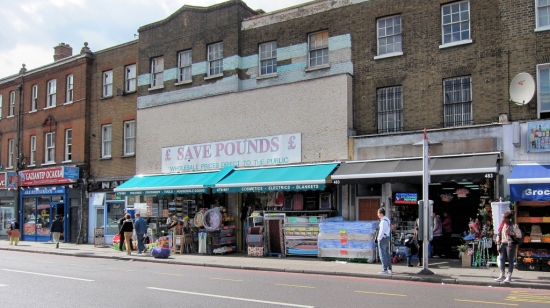In times gone by, the high street played a central role in the employment and social opportunities for the majority of British people. Teenagers spent most of their free time and money wandering in and out of shops, while for many people the first stop for a job would be in a local retailer’s on the high street.

Unfortunately, times have changed and the abandonment of many high streets has caused ghost towns to spring up across Britain. Out of town shopping centres and internet shopping have played a large part in the demise of the town centre, yet other factors such as high business rates and rising rental costs must also take their share of the blame. Parking charges and a lack of diversity in the remaining shops are also cited as reasons for consumer disinterest.
Sadly, the high street has been dealt yet another blow this week. According to the latest commercial market survey by the Royal Institution of Chartered Surveyors (RICS), demand for retail space fell by a further 13 per cent in the last quarter. Worryingly, this has only worsened the results of the previous quarter, when a damaging 18 per cent drop in demand was recorded.
The reasons for this drop are twofold, as demand is entirely dependent on the buoyancy or otherwise of the retail industry itself. Firstly, the number of businesses closing means that a growing number of premises appear available for rent on the market. Yet secondly, due to poor economic conditions and the impending threat of a third dip into recession, few are confident enough to set up their own businesses therefore reducing the demand for commercial property.
Largely contributing to this quarterly drop will be the number of businesses forced to enter administration towards the end of 2012 – JJB Sports being just one example. Although many of the chain’s properties were snapped up by rival Sports Direct, there remained a number which, with no buyer willing to take over the lease, would simply have been closed for business, leaving further vacancies on the high street.
Next quarter may not prove to be any better, with the administrations of HMV, Jessops and Blockbuster weighing heavily on the minds of industry experts. Unless a buyer can be found who is willing to take over all premises for the three chains, there will almost certainly be a rather significant drop in retail space demand.
Chief economist for RICS, Simon Rubisohn, believes that 2012 was one of the worst years the high street has seen for quite some time.
He says; “Sadly, this downbeat picture doesn’t look like changing any time soon with demand for retail space continuing to drop and more empty premises set to blight the country’s town centres.”
Of course, as the demand for retail property falls, so does the rental value of the worst hit areas. London, for example, saw its largest rental value dip since 2009 in the past quarter, with only Wales and the Midlands managing to keep their levels of demand fairly balanced. These were the only two regions in the UK which did not experience a fall in retail space demand.
Fortunately, there was some good news, although sadly not for the retail industry. RICS also found that industrial units and office space demand actually increased in the past quarter – the first time in 18 months it has done so.
The UK is becoming increasingly concerned for the survival of the high street, with the result that Vince Cable has now declared his support for a review of the business rates system.
Should the Government be offering incentives for retailers who remain, or want to return, to the high street – perhaps in the form of tax relief or cuts to business rates? Share your ideas for saving the high street below.
Previous Post
London Office Market Returns to Pre-Recession Levels